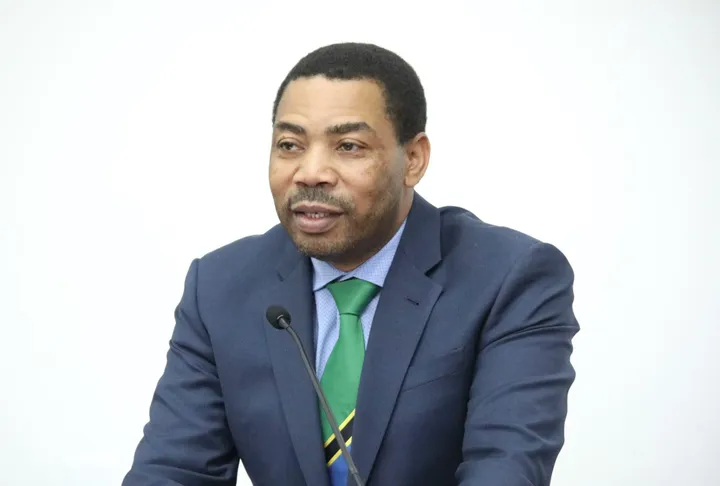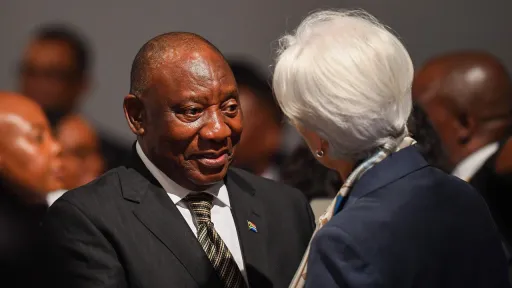Seventy-eight years later, the massacre of 45,000 Algerian nationals by French troops remains fresh in people’s minds.
Tuesday, May 8, 1945 was supposed to be a day when parts of the world were celebrating the downfall of the German empire that was perceived to be oppressive and cruel.
Algerian troops were among those who took part in dethroning Adolf Hitler, a German dictator who brought suffering to many people across the world.
However, as the rest of the world was celebrating that victory over Hitler, who had reportedly engineered the massacre of six million European Jews and at least five million prisoners of war, there were bloody scenes in different parts of Algeria – the French troops were haphazardly killing citizens who were taking part in anti-colonial protests.
French historians claim the death toll was 15,000 and not 45,000 as widely documented. However, official records put the toll at 45,000.
The French army was repressing demonstrations organised by civilians pushing for self-rule.
The protests took place largely in the northeastern cities of Sétif and Guelma, where most of the victims were killed.
Major, but bloody demos
The French had a week earlier broken up demonstrations in Algeria. The subsequent May 8 protests were, however, more intense and widely spread, resulting in the deadly massacre that left victims thrown off cliffs, demonstrators killed in their thousands, and even a higher number wounded.
Historian Redouane Aïnad Tabet wrote that the Algerian population was “shocked” by the happenings, and that the political elites were “really traumatised”.
'Uncle's killing affected us'
Hadda Hazem, the editor of Algerian daily Al-Fadjr, lost her uncle in the 1945 massacre.
She told TRT Afrika that her relative’s killing left permanent scars on her loved ones’ lives.
“He (uncle) was barely three months into his new marriage when he was killed. My distraught grandmother mourned him for 20 years, until she lost her sight. My father was badly affected by his brother’s death. Until now, we don’t know where my uncle’s body was buried,” said Hazem.
“France does not want to admit its crimes against Algerians, nor does it want to ask for forgiveness,” she added.
Waning influence
Historians document that the French, Algeria’s colonial master, was getting more worried by the day that their influence world-over was waning in the 1940s.
The high Muslim birth rate in Algeria contributed to land-reclamation calls and pressure for self-rule, triggering France’s desperate reaction in 1945.
Nationalists in Algeria, especially those based in Sétif and Guelma, had organised anti-French protests in late April 1945, which culminated in ugly clashes two weeks later.
When a 14-year-old member of the Muslim Scouts, Saal Bouzid, held an Algerian flag on May 8, the French, on orders from the army general, opened fire on the unarmed protesters, killing Bouzid and many others.
Thousands of bodies accumulated to the extent that burying them became “impossible”. As a result, most of them were dumped in wells or thrown off the cliffs.
The violence continued until May 22, when the locals surrendered.
By then, 45,000 Algerian nationals, including women and children, from Setif, Guelma and Kherrata had been killed alongside 100 French people, most of them soldiers.
Anti-colonial push, however, persisted. In November 1954, Algeria resumed its committed push for self-rule. The efforts eventually paid off on July 5, 1962 when Algeria was declared an independent nation.
‘Inexcusable tragedy’
May 8 of every year is an official day of mourning in Algeria, contrasting heavily with the celebratory anniversary around Europe.
On February 27, 2005, the then-France's Ambassador to Algeria, Hubert Colin de Verdière, formally apologised for the massacre, terming it an "inexcusable tragedy".
On May 8, 2022, Algerian President Abdelmadjid Tebboune said the “heinous massacres" committed during the French colonial era in Algeria "can't be forgotten."
In a message on the 77th anniversary of the May 8, 1945 massacre, Tebboune said the bloodshed was a turning point in Algeria’s history.
Macron ‘sorry’
On October 17, 1961, during the run-up to Algerian independence, more citizens bore the brunt of French authorities.
Police attacked at least 25,000 pro-National Liberation Front (FLN) Algerians protesting against a curfew imposed on Algerians.
On October 16, 2021, French President Emmanuel Macron apologised for the 1961 attacks, saying the march by Algerians was repressed “brutally, violently and in blood”.
The president said he “recognised the facts: that the crimes committed that night under Maurice Papon are inexcusable for the Republic”.
For years, Algeria has demanded France to recognise and compensate for its crimes committed against the Algerian people during the French colonial period between 1830 and 1962.





























